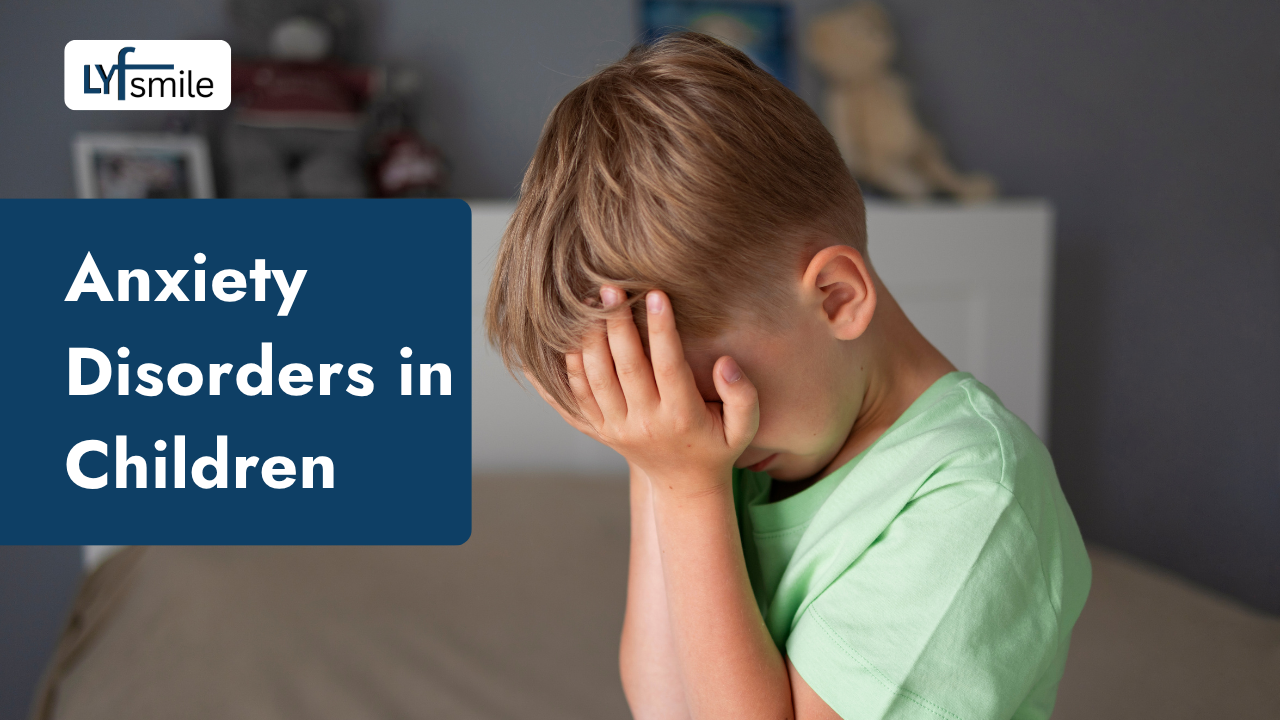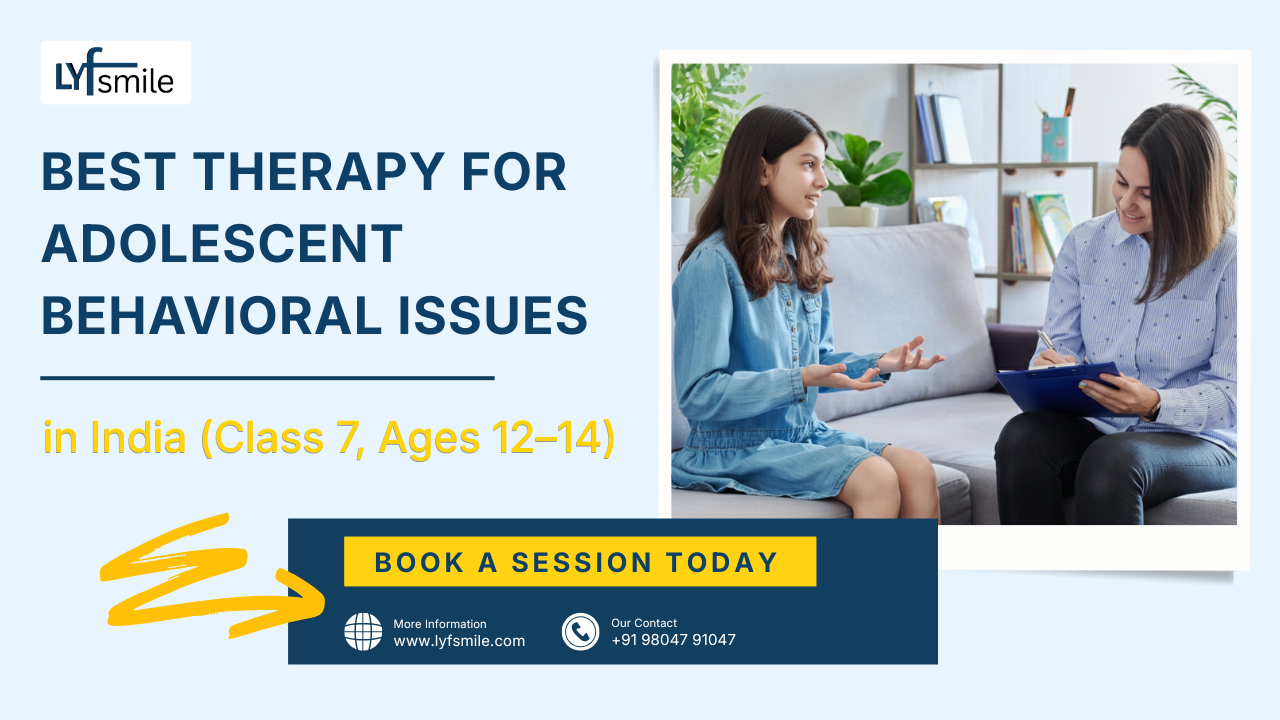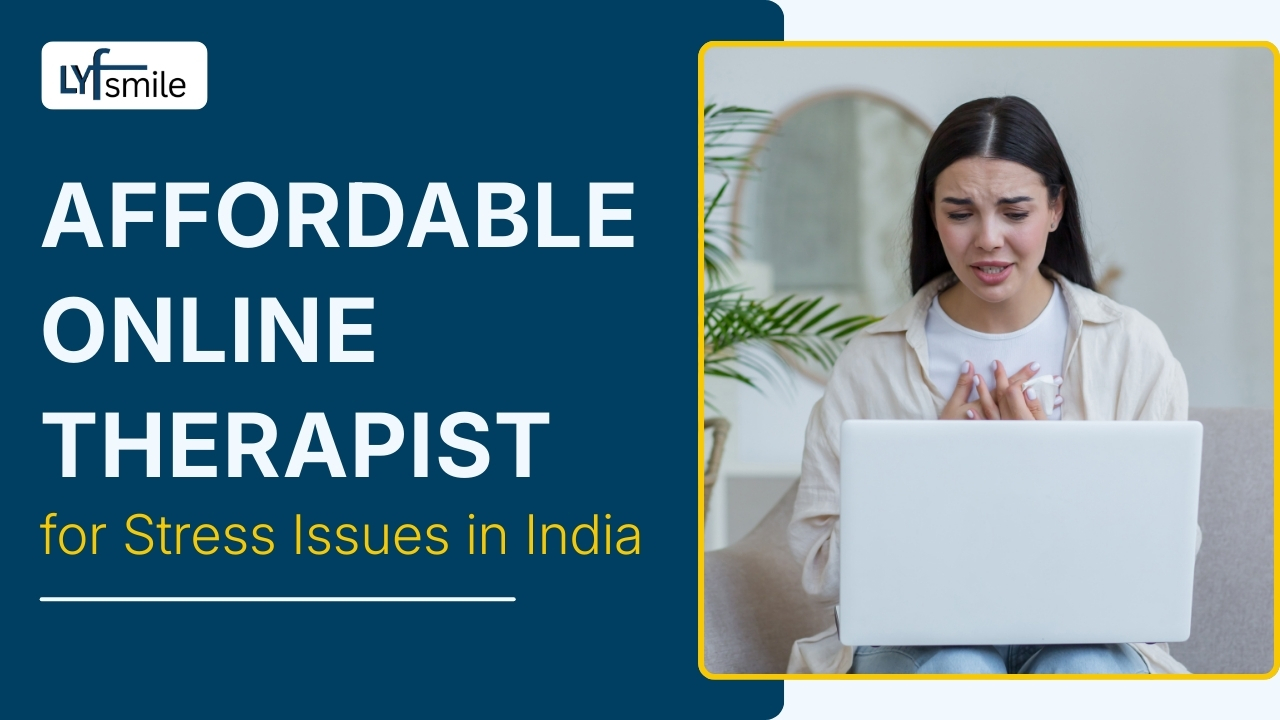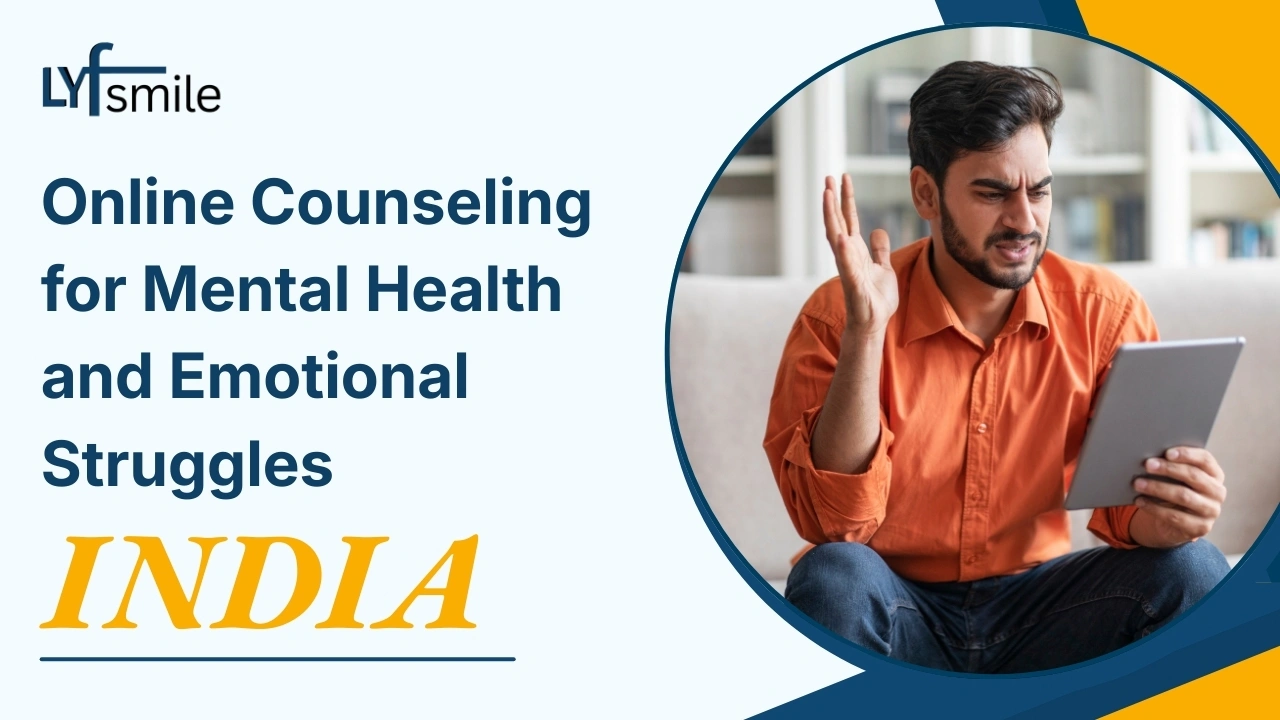
Anupam Tripathi
Anxiety Disorders in Children: Causes, Symptoms & Treatment in Gurgaon
Every parent dreams of seeing their child happy, confident, and emotionally secure. But sometimes, a child may begin to show unusual patterns—persistent fear, constant worry, mood changes, or aggressive behavior that feels difficult to understand. These emotional and behavioral issues are often signs of anxiety disorders in children, one of the most common mental health concerns among children and teenagers today.
If you live in Gurgaon and have noticed your child becoming withdrawn, restless, or unusually irritable, it’s important to know that help is available. Early intervention through the right child psychologist or therapist in Gurgaon can make a life-changing difference.
Common Emotional & Behavioral Issues in Children and Teenagers

Excessive Worry & Fear (Anxiety Conditions)
Children may constantly worry about school, separation, or social situations.Generalized Anxiety Disorder (GAD): Persistent worry about everyday matters like grades, health, or friendships.
Social Anxiety (Social Phobia): Fear of being judged or embarrassed.
Separation Anxiety Disorder: Extreme distress when away from parents or caregivers.
Panic Attacks: Sudden, intense fear with physical symptoms like racing heart or breathlessness.
Depression
Children experiencing depression may appear sad, withdrawn, or uninterested in activities they once enjoyed. You might notice changes in sleep, appetite, or academic performance. When left unaddressed, childhood depression can affect confidence and emotional growth—but with early therapy and support, recovery is very possible.Bipolar Disorder
Bipolar disorder in children involves intense mood swings—from extreme excitement or hyperactivity to deep sadness and irritability. These shifts can occur suddenly and may impact focus, energy, and behavior both at home and in school. Identifying early signs helps prevent long-term emotional instability and supports healthy coping patterns.Anger Issues / Aggression
Children struggling with anger issues often react strongly to frustration, leading to arguments, defiance, or physical aggression. These behaviors usually mask deeper emotions like fear, anxiety, or helplessness. With emotional regulation therapy and consistent parental guidance, children can learn healthier ways to express anger and resolve conflict.Oppositional Defiant Disorder (ODD)
A pattern of arguing, refusing to follow rules, or showing hostility toward authority.Conduct Disorder
More severe behavior like lying, stealing, or fighting—often seen in older children or teens.
These emotional and behavioral challenges often overlap. For instance, a child dealing with anxiety may also show signs of depression or adjustment problems—especially after major life changes like moving cities, changing schools, or family stress.
Case Insight: Aarav’s Story
Nitin, a 10-year-old from Gurgaon, began refusing to attend school and complained of stomach aches every morning. His parents initially thought he was being difficult but later learned that he was experiencing severe separation anxiety. With child-friendly therapy at Lyfsmile—including play-based CBT and parent guidance—Aarav gradually overcame his fears and returned to school confidently.
This case highlights why understanding emotional behavior early is crucial. What seems like misbehavior can actually be a child’s way of saying, “I’m scared, and I don’t know how to tell you.
Symptoms and Causes of Anxiety Disorders in Children

Recognizing the signs early is key to effective treatment. Anxiety disorders in children can show up emotionally, physically, and behaviorally.
Common Symptoms of Anxiety Disorders
Constant fear or worry, even without a clear reason
Avoiding school, friends, or social events
Frequent stomach aches or headaches with no medical cause
Trouble sleeping or recurring nightmares
Sudden crying, irritability, or panic episodes
Overthinking or asking repeated reassurance questions (“What if…?”)
Physical symptoms like fast heartbeat, sweating, trembling, or dizziness
If these signs persist for weeks or months, it may indicate an underlying anxiety disorder that requires professional attention.
Causes of Anxiety Disorders in Children
Several factors can contribute to developing anxiety disorders in children:
Genetics: Family history of anxiety or mood disorders.
Environment: High academic pressure, parental conflict, or relocation stress (common among Gurgaon families).
Parenting Patterns: Overprotective or highly critical environments can increase anxiety levels.
Trauma or Stressful Events: Bullying, accidents, or separation from loved ones.
Biological Factors: Imbalance in brain chemistry affecting mood regulation.
For children in fast-paced cities like Gurgaon, exposure to competitive schooling, limited outdoor play, and digital overload often heighten anxiety symptoms. Recognizing these early can prevent them from developing into long-term emotional regulation issues.
Best Child Therapy Techniques That Actually Make a Difference

The encouraging news is that most childhood emotional and behavioral challenges are highly treatable. With the right mix of therapy, support, and consistency at home, children can learn healthy coping strategies and regain emotional balance.
Connect with an experienced child psychologist or therapist in Gurgaon to help your child manage emotions, anxiety, and behavioral challenges effectively. At Lyfsmile Gurgaon, therapists use evidence-based and child-friendly approaches designed specifically for young minds.
1. Cognitive Behavioral Therapy (CBT)
CBT is one of the most widely recommended therapies for children struggling with anxiety, fear, or low confidence. It helps kids identify negative thoughts and replace them with more balanced, realistic ones.
At Lyfsmile, therapists use storytelling, drawings, and gentle role-play to help children express worries and practice positive thinking in everyday life.
2. Play Therapy
Play therapy allows children to communicate through games, art, and creative play rather than words. This safe, enjoyable method helps them express emotions, process fears, and rebuild confidence—especially useful for younger children.
3. Family Therapy
Family involvement is often the turning point in recovery. Family therapy sessions teach parents how to respond calmly and supportively instead of unintentionally reinforcing anxiety or anger. It strengthens communication and emotional trust at home.
4. Mindfulness & Relaxation Training
Mindfulness-based techniques like breathing exercises, guided imagery, and simple yoga can reduce stress, calm racing thoughts, and build emotional control. These methods also improve focus and sleep—essential for school-aged children.
5. Medication (When Necessary)
In cases where symptoms are moderate to severe, a child psychiatrist may prescribe short-term medication for relief. At Lyfsmile Gurgaon, medication is always used carefully—only when required—and in combination with therapy and parental education to ensure holistic healing.
Ways to Help Your Child at Home and Know When It’s Time for Child Therapy

Parents play the most important role in a child’s emotional health. The way you respond to their fears can either calm or amplify their anxiety.
What You Can Do at Home:
Listen patiently: Let your child express worries without judgment.
Normalize emotions: Explain that feeling anxious sometimes is okay and doesn’t make them weak.
Avoid overreassurance: Encourage problem-solving instead of repeatedly saying, “It’s fine.”
Limit screen time: Excessive gadget use can worsen anxiety and mood regulation.
Encourage outdoor play and hobbies: Physical activity helps release stress hormones.
Model calmness: Children mirror adult behavior—manage your own stress visibly.
When to Seek Professional Help:
Consult a child psychologist in Gurgaon if you notice:
Anxiety interfering with school or friendships
Frequent physical complaints without medical reason
Sudden changes in eating or sleeping habits
Constant sadness, fear, or aggression lasting over 2–3 weeks
Getting help early prevents chronic anxiety conditions and helps your child build healthy emotional resilience.
Why Choose Lyfsmile for Your Child’s Emotional Wellbeing?
Lyfsmile is one of the most trusted mental health platforms in Gurgaon, known for its child-centered and evidence-based approach.
Here’s Why Parents Prefer Lyfsmile:
Certified child psychologists & therapists with years of experience in treating anxiety disorders, depression, and behavioral issues.
Customized Treatment Plans: Each child is unique—therapy plans are designed to match age, personality, and emotional needs.
Holistic Approach: Focus on therapy, family counseling, and emotional education—not just quick fixes.
Confidential & Supportive Environment: Safe, non-judgmental spaces for children to open up.
Convenient Gurgaon Locations: Easily accessible clinics and online therapy options for working parents.
Whether it’s emotional regulation issues, Oppositional Defiant Disorder, or depression, Lyfsmile helps children learn healthy coping mechanisms and empowers parents to support them effectively.
Final Thoughts
Emotional and behavioral issues like anxiety disorders in children are not signs of weakness but signals that a child needs support and understanding. With timely help from experienced child psychologists in Gurgaon, your child can learn to manage emotions, build confidence, and rediscover joy.
At Lyfsmile, healing begins with compassion, expert care, and a safe space for your child to grow emotionally strong and resilient.
FAQs
1. What are common emotional and behavioral issues seen in children?
Kids may struggle with fear, anger, mood swings, sadness, or defiance. These signs often point to deeper emotional challenges that need attention.
2. How do I know if my child’s worry or fear is normal or something serious?
Occasional worry is normal, but if it interferes with school, friendships, or daily life for weeks, it’s time to seek professional help.
3. Can stress at school or high academic pressure cause emotional issues?
Yes. Academic competition, bullying, or constant performance pressure can trigger stress, low confidence, and even physical symptoms like headaches or fatigue.
4. What role do parents play in helping a child manage emotional difficulties?
Parents can support by listening patiently, validating feelings, maintaining routines, and encouraging open conversations instead of judgment.
5. What kind of therapy helps children cope better?
Cognitive Behavioral Therapy (CBT), play therapy, mindfulness training, and family sessions are proven to help children regulate emotions effectively.
6. How long does therapy for children usually take?
Duration depends on the child’s needs. Many begin to show improvement within 8–12 sessions, though consistent follow-up ensures lasting progress.
7. Is it normal for children to have mood swings or anger outbursts?
Occasional irritability is fine, but frequent aggression or difficulty calming down can indicate an underlying emotional imbalance that needs attention.
8. How can teachers and schools support a child facing emotional challenges?
Schools can help by creating safe spaces, avoiding punishment for emotional behavior, and collaborating with child psychologists for classroom strategies.
9. Are online therapy sessions effective for children?
Yes. With interactive, age-appropriate tools, online sessions can be just as effective as in-person visits, especially for busy families in Gurgaon.
10. How can Lyfsmile help parents looking for expert guidance in Gurgaon?
Lyfsmile connects families with certified child psychologists who specialize in emotional and behavioral care, offering both in-clinic and online support.








